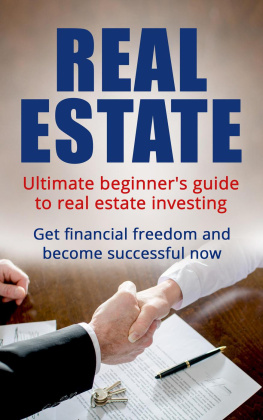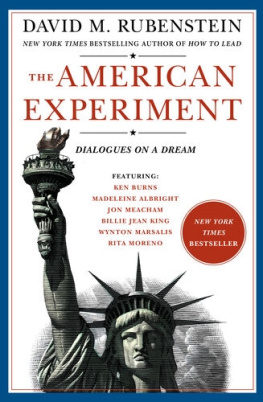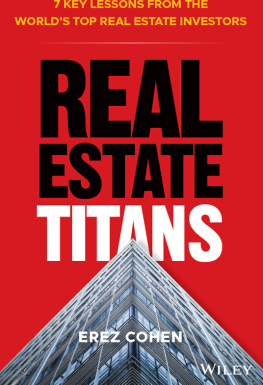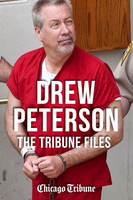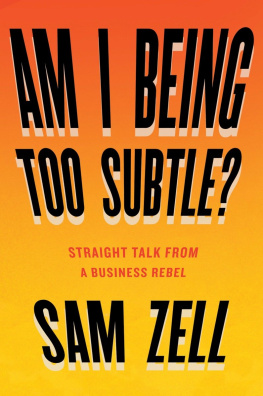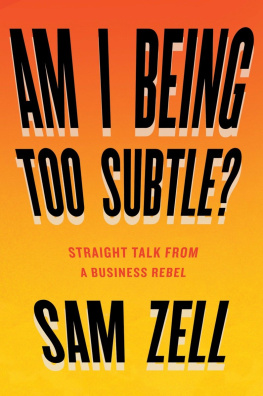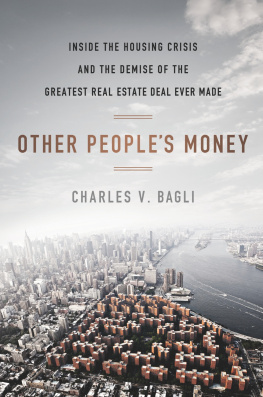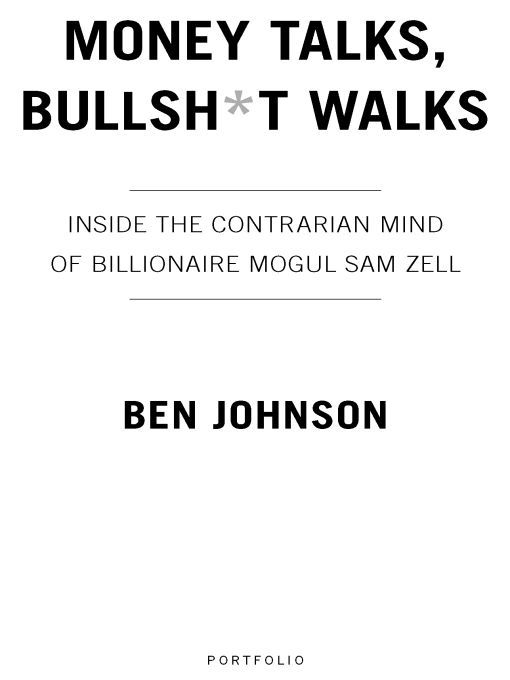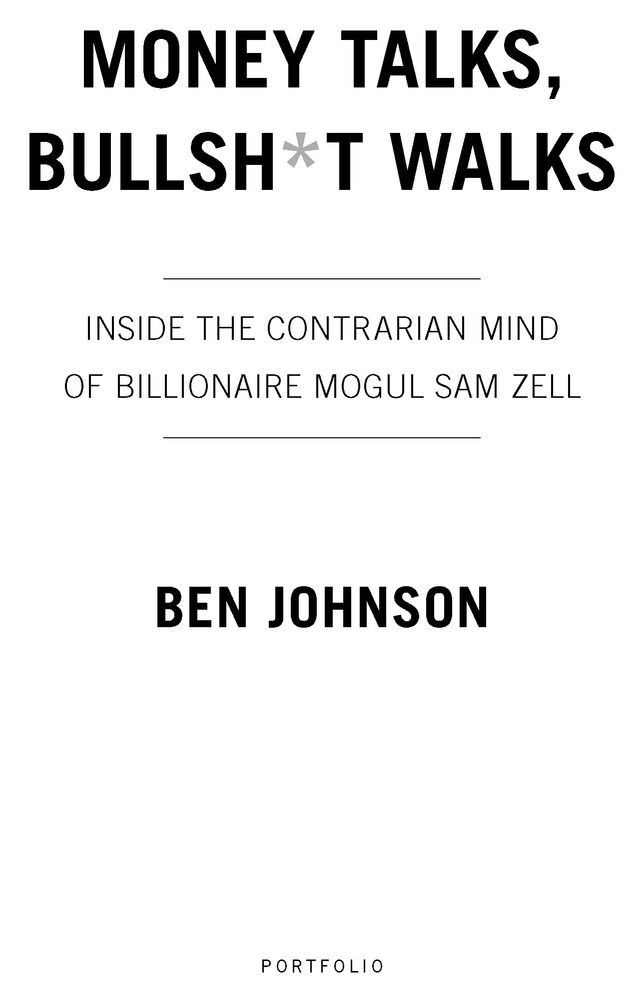Table of Contents
This book is dedicated to my loving wife, Angela,
adoring daughter, Alex, and constant companion, Sophie,
for their patience in seeing me through the
long days and nights when it was all about me.
And to my mom and dad for their many sacrifices along
the way to ensure my brother and I had a leg up.
I just hope theyre all proud.
PROLOGUE
IT WAS NO way to start the workweek, especially for one of the richest people in the world, with a net worth of $3 billion. But after a long and painful weekend spent haggling with many of the worlds largest banking institutions, Samuel Zell knew his options had run out. Early on the morning of Monday, December 8, 2008, the noted Chicago investor was putting the finishing touches on the bankruptcy filing for his Tribune Company, the third-largest media conglomerate in America.
This move would mark the largest blemish on his stunningly successful forty-five-year business career. But with almost $13 billion in debt killing the company, even Zell, one of the most prescient and successful modern-day investors, had no tricks left up his sleeve.
Coming after less than a year under Zells ownership353 days to be preciseTribunes demise quickly became the largest media bankruptcy in history. And for Zell, it was an uncharacteristic, and high profile, failure. After all, he was one of historys greatest contrarian investors, a respected firebrand of a titan who had elevated himself by his bootstraps: parlaying a puny $1,500 real estate investment into billions in personal wealth.
Throughout the 1970s, 80s and 90s, Zells business track record had become the stuff of legend, marked by spectacular bits of market timing and a penchant for going against the grain. His primary strategy was to scarf up troubled companies on the cheap, then rely on his management skills and intuition to turn them around. Later he would sell them off for a bundle. He also became known for his prickly demeanor and blunt, no-bullshit style. Though he often spoke in braggadocious terms, he nearly always backed up his mouth with results.
Through success and failure, Zell became the quintessential poster child for contrarianism. He revels in the passion of life, sucking every last nickel and dime out of it, in business and in pleasure. As he put it, I challenge conventional wisdom and I continually test my limits.
What really sealed Zells stellar reputation was one whopper of a deal. In February 2007, he sold his Equity Office Properties Trust, the largest owner of office buildings in the world, for a hefty $39 billion to Blackstone Group. That was the largest leveraged buyout in corporate history (at the time) and more important, was executed at the absolute peak of the real estate market bubble. Certainly Zells sale was a prescient one, as he narrowly escaped the looming real estate industry collapse and subsequent panic in the global financial system in the latter stages of 2007 and 2008.
But just as Zell reached the absolute pinnacle of his career, his entrepreneurial nature would not allow him to sit contentedly on his billions in Equity winnings. Instead he remained true to his risk-taking nature. In a cruel twist of irony, he was eying a new prizeTribuneon the very same day he was cashing out on the Equity Office sale.
Though Zell had shown a penchant for the offbeat when it came to investingmaking a fortune in unglamorous industries, including cargo containers, fertilizer, and even plumbingpublishing was one business sector he had not tapped with his billions. Still, to the consummate turnaround artist and vulture investor, it represented one of the highest mountains yet to climb. Zell is a voracious deal maker, constantly scanning the headlines for his next prey. He knows that most troubled companies can be steered successfully through their crises, if the right management structure and talent can be brought to bear on the situation.
With Tribune, though, Zell pushed well past his limits. No amount of timing or judicious use of four-letter wordswhich Zell tosses around more frequently than radio shock jock Howard Sterncould save his hide. There was no getting past the harsh reality that this deal was done at the worst possible moment, just when the deepest economic recession since the Great Depression stole the national spotlight. Advertising revenue for Tribunes newspapers had been shrinking dramatically for years, especially at the two flagship properties, the Los Angeles Times and Chicago Tribune, which ranked as Americas fourth- and sixth-largest newspapers, respectively. Zell knew the bleeding was badhe built a certain level of continued revenue deterioration into the dealbut he badly misjudged the severity of the continued decline and was about to fall off the pedestal he had put himself on many years earlier.
Ever the optimist, Zell saw the Tribune bankruptcy as being far from an unmitigated disaster. True entrepreneurs never fail, said Zell. Sometimes it doesnt work out, but they never fail. From a financial perspective, he put only $315 million of his own skin in the deal. He was also a pioneer in a way, since Tribunes demise was followed less than four months later by the bankruptcy of crosstown rival Sun-Times Media Group. The skeptical media world saw it a bit differently. It had long since dismissed him as a foul-mouthed real estate cowboy out to wreak revenge on the journalists he so loathed. Chapter 11 was his ultimate comeuppance. Now he would be at the mercy of a bankruptcy judge. The king had most certainly lost his throne as well as his clothes.
Of far greater import to Zell was the potential damage to his personal reputation with financial institutions. He had spent decades cultivating partnerships and friendships that paid off when he needed them most, bailing him out of occasional mishaps. But the financial community was already in a state of turmoil. Tribunes demise was the latest chapter in a story of economic disaster that nearly derailed the world economy in late 2008, sweeping away the likes of Wall Street stalwarts Bear Stearns and Lehman Brothers. The entire American banking industry saw massive consolidation into a handful of behemoths like Bank of America, JPMorgan Chase, and Wells Fargo.
Regardless of the Tribune bankruptcy, Sam Zell has made himself a corporate presence impossible to ignore. Thanks to his contentious ownership of Tribune, Zell Watch is the ongoing pastime of professional journalists and media pundits alike, as he provides constant fodder for the endless stream of message boards, blogs, and other fields of chatter. Whether he likes it or not, his corporate movements will be more closely tracked than ever beforenot because he pissed off most of the vigilant media but because his bravado and arrogance have made him a larger-than-life character.
In a quirky way, Zells folly is likely to have a lasting impact on the future of media. As an unintended consequence of Tribunes bankruptcy, he brought needed attention and focus to the plight of global media companies as well as the future of the daily newspaper. Unfortunately, he was not able to turn around Tribunes flagging financial fortunes fast enough to beat the ticking debt clock. A collective sigh of relief could be heard in newsrooms across the countryfinally, maybe, they would be rid of this four-letter distraction who cared little for their valuable role in society. But there was also the stark realization that Zell was merely the latest in a long line of would-be scapegoats. He was not the root cause of one of modern medias undeniable inevitabilitiesthe fact that the daily newspaper was dying.


